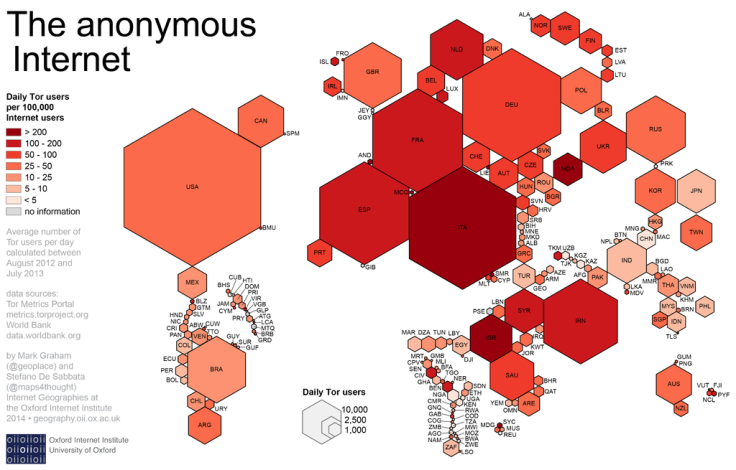Banning Tor Anonymity Software Could Increase Drug Crimes In UK, Parliamentary Report Finds

The anonymity software Tor was designed to circumvent online censorship, which means that trying to ban the service in Britain probably isn't possible. That's according to a briefing by Britain's Parliamentary Office of Science and Technology, which issued a note Monday as Prime Minister David Cameron and others have increased their focus on prohibiting online encryption.
The four-page POST document concludes that not only do most British citizens think that they deserve some sense of privacy online, but that law enforcement relies on the Tor network to mask many of its own investigative techniques. There's also serious doubts about whether it would be possible to block Tor, as it has connection points throughout the world meant to circumvent censorship like the kind seen in China, Russia and throughout much of the Middle East.
Tor, an acronym for The Onion Router, is a browser plug-in that obscures a computer's physical location, Internet Protocol (IP) address and a user's activity online. It was created as a U.S. government project before being released to the public and finding favor with everyone from activists and dissidents to drug dealers and pedophiles.
The most effective argument for trying to crack down on Tor cites the community of child pornographers who congregate within the Hidden Services section of Tor, one of the last Internet enclaves where criminals are able to operate without much scrutiny.
Yet the report also goes on to wonder if banning Tor would actually increase street crime, citing a 2014 book called “The Dark Net” that used the online drug market Silk Road as a conversation starter:
“Online drug markets like the Silk Road transfer parts of the drug dealing business from the streets to the Internet and may shorten the supply chain from drug producers to consumers. Some say this can reduce the number of drug-related crimes like robbery and shoplifting, and thus lower the social and economic costs of drug misuse.”
Cameron has been outspoken in his opposition to services that provide online anonymity or encryption. He met with U.S. President Barack Obama to discuss the issue in January, and has argued that encryption not only enables child abuse, but makes the rest of the population vulnerable to terrorism and other acts of mass violence.
The POST said that roughly 100,000 people are using Tor within Britain at any given time.
© Copyright IBTimes 2024. All rights reserved.





















